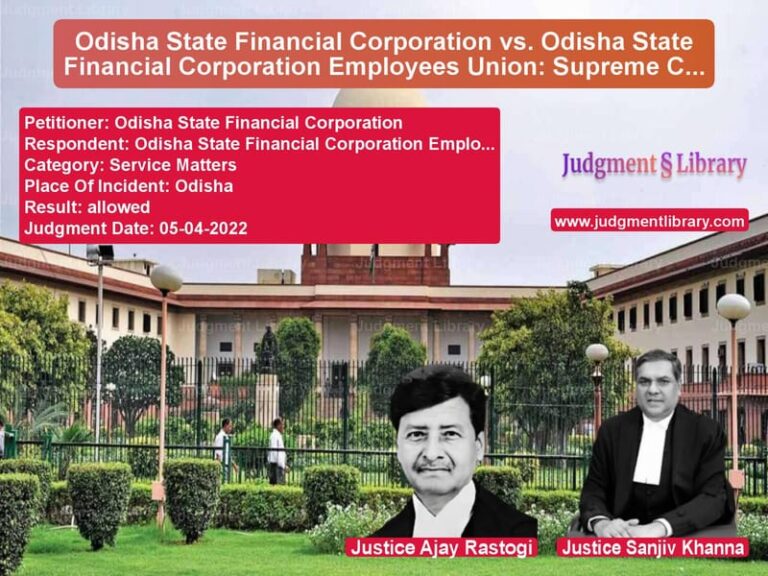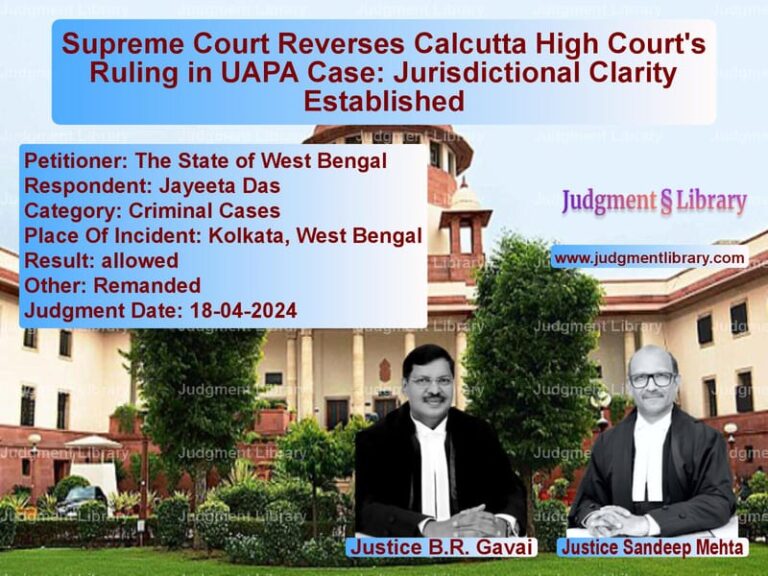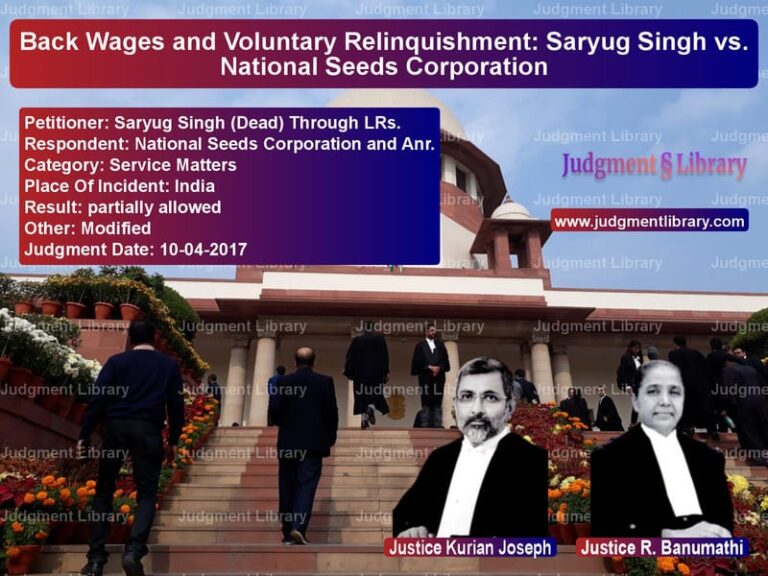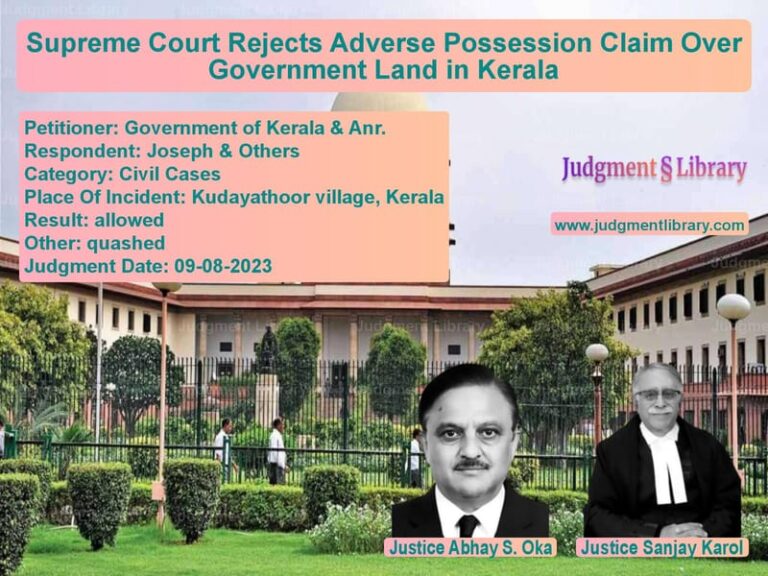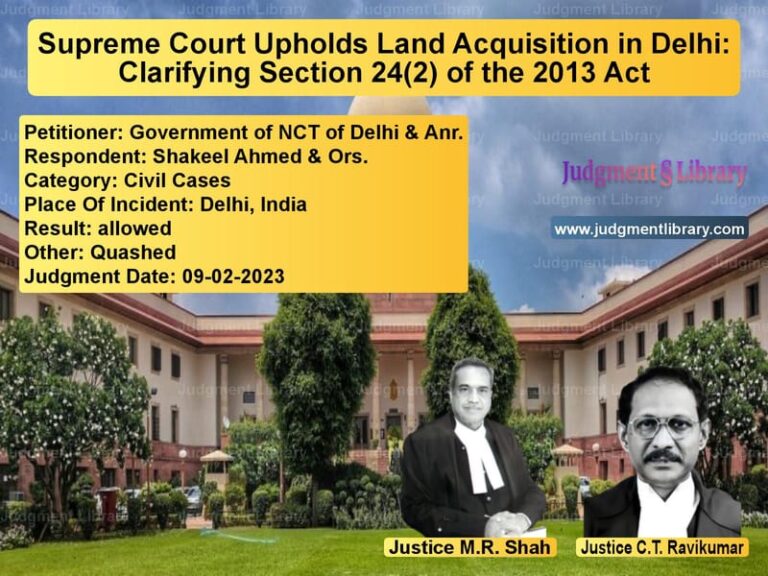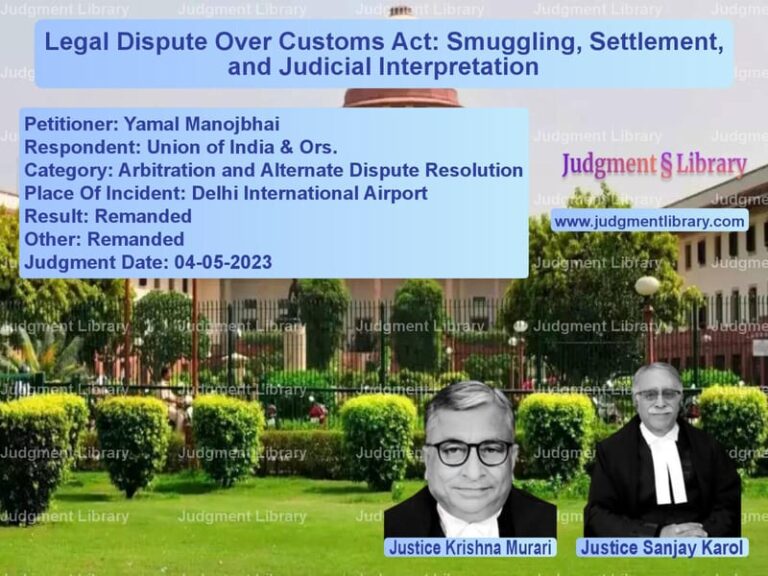Electronic Evidence and Fair Trial: Balancing Accused’s Rights and Victim’s Privacy
The case of P. Gopalkrishnan @ Dileep vs. State of Kerala raises crucial legal questions regarding electronic evidence, fair trial rights of the accused, and the privacy of victims in criminal proceedings. The primary issue revolves around whether the contents of a memory card or pen drive, containing alleged video footage of a crime, should be treated as a ‘document’ under the law and whether the accused is entitled to a cloned copy of such electronic evidence.
Background of the Case
The case originated from an alleged criminal act where a video recording of the crime was stored on electronic media. The prosecution relied on the contents of a memory card containing this footage as evidence. The accused, P. Gopalkrishnan @ Dileep, demanded a cloned copy of the electronic evidence, arguing that it was essential for preparing his defense.
The prosecution opposed this request, contending that the contents of the memory card should not be treated as a mere ‘document’ but rather as ‘material evidence,’ and sharing a copy with the accused could compromise the privacy of the victim and the integrity of the trial.
Key Legal Issues
- Whether electronic records stored on a memory card or pen drive qualify as ‘documents’ under the Indian Evidence Act, 1872.
- Whether the accused is entitled to a cloned copy of such evidence under Section 207 of the Criminal Procedure Code (CrPC), 1973.
- How the court should balance the right of the accused to a fair trial with the victim’s right to privacy.
- The role of digital forensic analysis in safeguarding electronic evidence.
Petitioner’s (P. Gopalkrishnan @ Dileep) Arguments
- The accused contended that Section 207 of the CrPC mandates that all documents relied upon by the prosecution must be furnished to the accused.
- He argued that denying him access to a cloned copy of the electronic evidence violates his constitutional right to a fair trial under Article 21 of the Constitution.
- The defense also highlighted that the authenticity of digital evidence can only be effectively challenged through independent forensic analysis, which requires access to the full contents.
- The accused further stated that he was willing to comply with any protective measures imposed by the court to prevent misuse of the evidence.
Respondent’s (State of Kerala) Arguments
- The prosecution argued that the memory card is not merely a document but material evidence, as it directly captures the alleged criminal act.
- It contended that providing a cloned copy could lead to misuse, violating the victim’s privacy and exposing her to secondary victimization.
- The State emphasized that the accused had been given an opportunity to inspect the evidence in the presence of court-appointed experts, ensuring that his right to defense was not compromised.
- It was further submitted that modern forensic techniques allow the accused to examine the metadata and authenticity of the video without necessitating an independent copy.
Supreme Court’s Observations
- The court held that electronic records, including memory cards and pen drives, do qualify as ‘documents’ under the Indian Evidence Act.
- It ruled that under normal circumstances, the accused should be provided with copies of all evidence relied upon by the prosecution to ensure a fair trial.
- However, given the sensitive nature of the evidence in this case, the court found it necessary to balance the accused’s right to a fair trial with the victim’s right to privacy.
- The judgment highlighted the importance of judicial discretion in determining when and how electronic evidence should be shared with the defense.
Final Judgment
The Supreme Court partially allowed the petition, ruling that:
- The accused is entitled to examine the electronic evidence but only under the supervision of a forensic expert appointed by the trial court.
- The memory card shall remain in the custody of the court, and access shall be granted in a manner that safeguards the victim’s privacy.
- The accused’s demand for a cloned copy was denied, but alternative means of examining the evidence were provided.
Impact of the Judgment
- Clarification on Electronic Evidence: The ruling provides guidance on how digital records should be handled in criminal trials.
- Balancing Fair Trial and Privacy: The judgment ensures that while the accused has access to evidence, the victim’s dignity is not compromised.
- Forensic Integrity: The decision underscores the role of forensic science in maintaining the credibility of digital evidence.
Conclusion
The Supreme Court’s decision in P. Gopalkrishnan @ Dileep vs. State of Kerala sets an important precedent for handling electronic evidence in criminal cases. It strikes a balance between the accused’s right to a fair trial and the victim’s right to privacy, ensuring justice while protecting sensitive digital records.
Petitioner Name: P. Gopalkrishnan @ Dileep.Respondent Name: State of Kerala and Another.Judgment By: Justice A.M. Khanwilkar, Justice Dinesh Maheshwari.Place Of Incident: Kerala.Judgment Date: 29-11-2019.
Don’t miss out on the full details! Download the complete judgment in PDF format below and gain valuable insights instantly!
Download Judgment: P. Gopalkrishnan @ D vs State of Kerala and Supreme Court of India Judgment Dated 29-11-2019.pdf
Direct Downlaod Judgment: Direct downlaod this Judgment
See all petitions in Bail and Anticipatory Bail
See all petitions in Cyber Crimes
See all petitions in Juvenile Justice
See all petitions in Fraud and Forgery
See all petitions in Custodial Deaths and Police Misconduct
See all petitions in Judgment by A M Khanwilkar
See all petitions in Judgment by Dinesh Maheshwari
See all petitions in partially allowed
See all petitions in Modified
See all petitions in supreme court of India judgments November 2019
See all petitions in 2019 judgments
See all posts in Criminal Cases Category
See all allowed petitions in Criminal Cases Category
See all Dismissed petitions in Criminal Cases Category
See all partially allowed petitions in Criminal Cases Category


